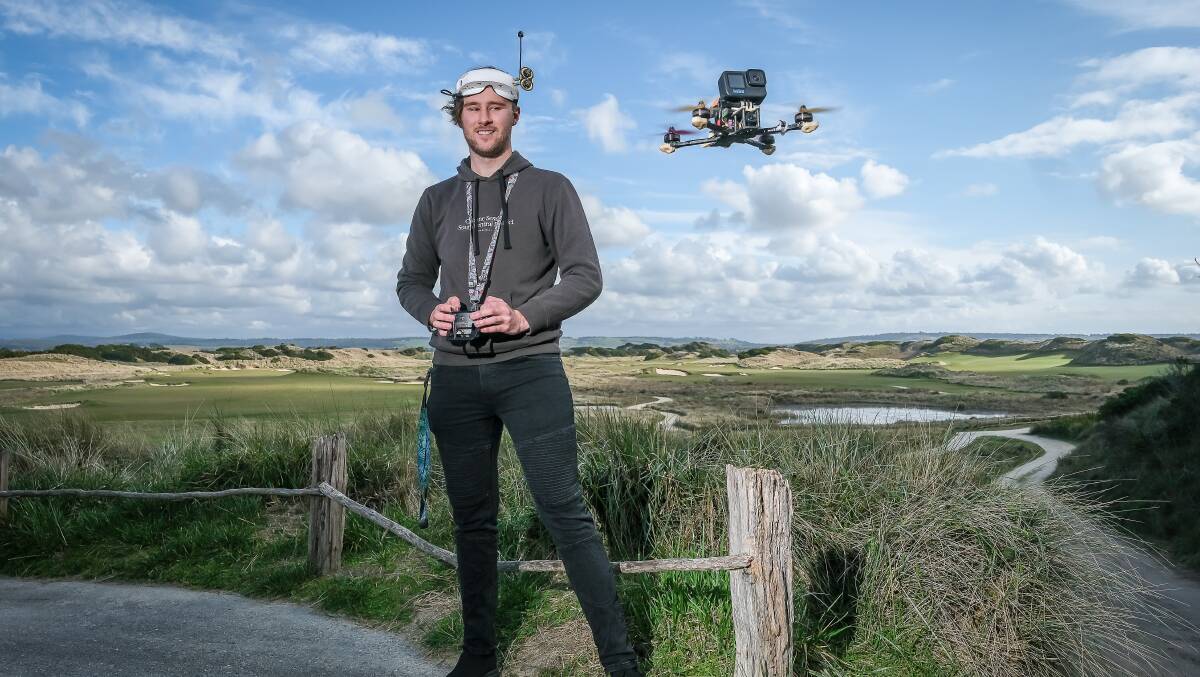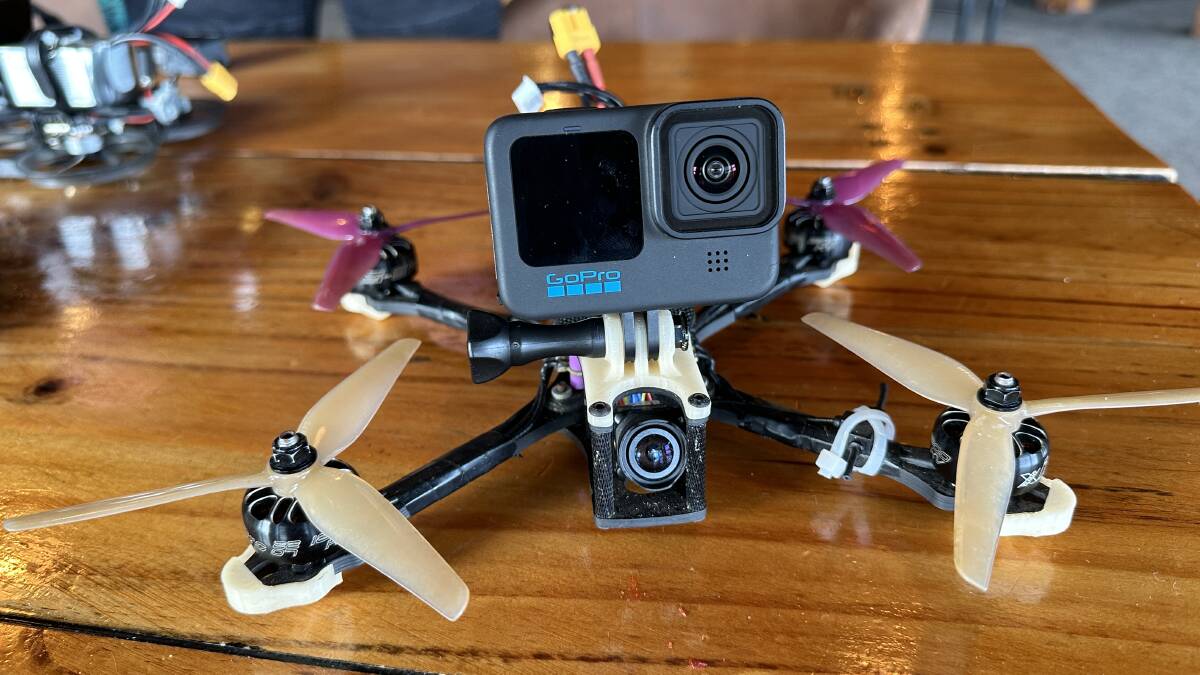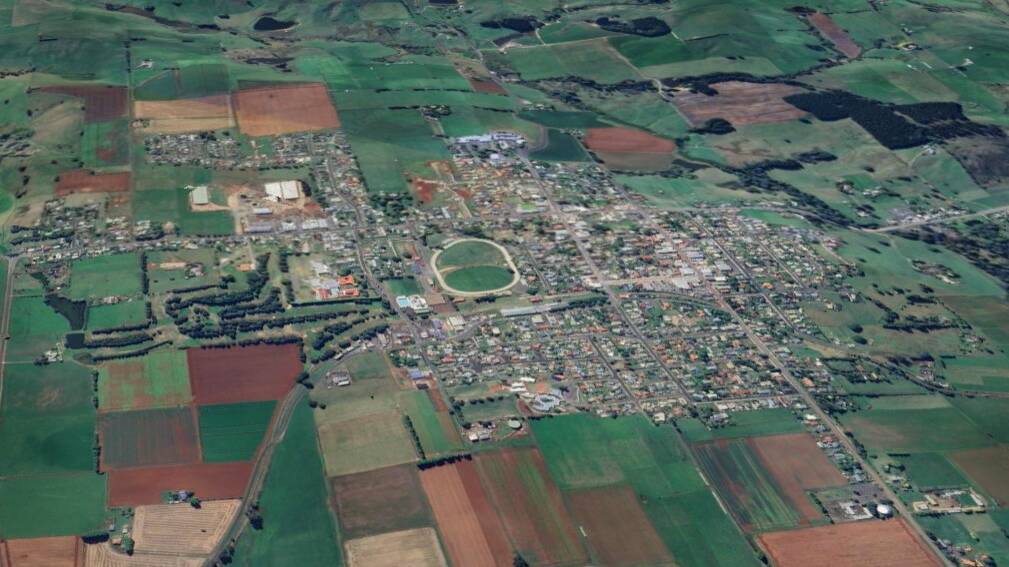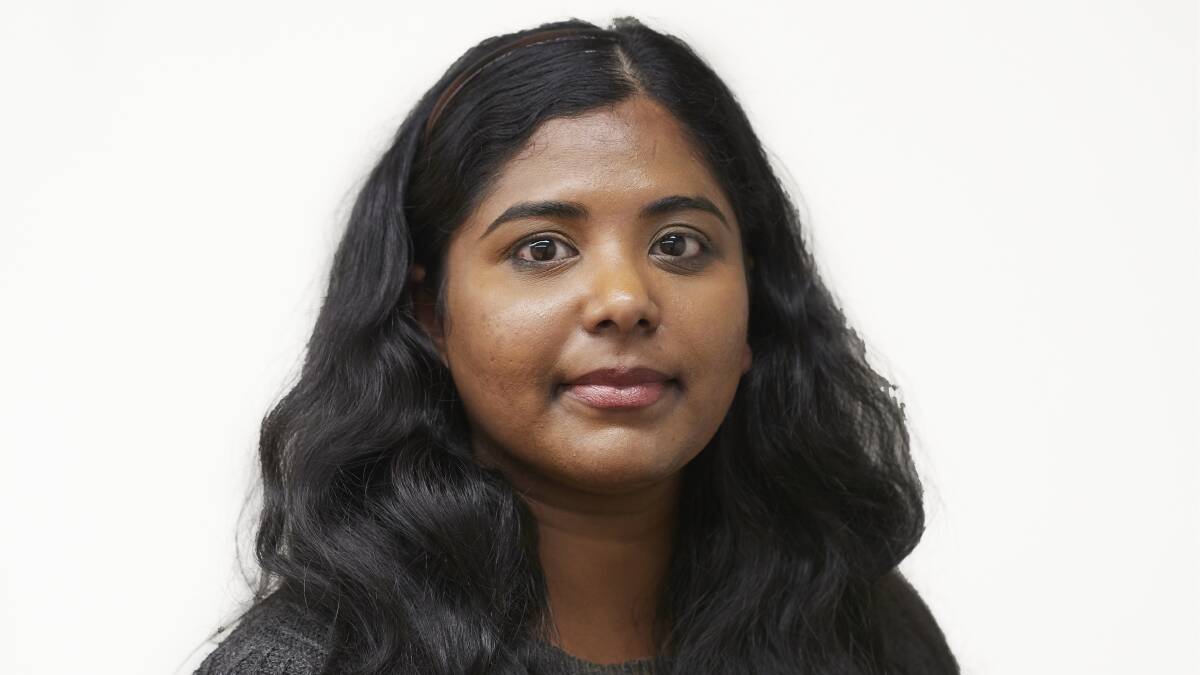Living in a small town of farmers more than twice his age, Jeffrey Darby-Norris was struggling to find a use for his computer science degree.
Create a free account to read this article
$0/
(min cost $0)
or signup to continue reading
Then he discovered drones.
The 20-year-old turned his "little knack for technology" into FPV Innivations, a business offering bird's-eye video footage and advertising services.
Drones allowed him to "see life from a different point of view".

"Everyone around here pretty much works on the farms," he said. "If you don't work on the farms they don't take you seriously.
"It's very hard to have connections and get people to believe in what you do, especially when the place is hugely open to farming."
How a hobby became a business
The median age in his home town of Scottsdale, Tasmania is 48.4 and the region is dominated by timber, dairy and farming.
There are only a handful of people of Mr Darby-Norris's age and he describes life as "really slow pace".
More than one quarter of people aged over 15 are employed in agriculture, forestry or fishing in his community.
But Mr Darby-Norris always loved learning how things work.

A passion for cars led to a deep interest in technology fuelled by a high school teacher who introduced him to programming, cybersecurity and drones.
Flying drones was a hobby until the local council needed surveillance of a broken sewerage system. Mr Darby-Norris offered his drone services and his business was born.
He's since worked for car shows and other small businesses. He hopes to eventually entrench himself in hospitality and tourism.
Breaking the farming mould
There's a limit to what you can do in established industries, he says, but drones are an emerging field and he enjoys the possibility of being a "pioneer".
Mr Darby-Norris comes from an entrepreneurial family which owns Scottsdale's Darby-Norris distillery and most of his relatives have owned a small business.
While he's benefitted from their expertise and experience, he faces unique challenges as a young entrepreneur in the regions.
A perception that if you're not into farming "it's not really a business" persists, he said.
"It's hard for people to open up and look into what you can provide."

It's also "very difficult" to find others with similar interests and opportunities to network with other young entrepreneurs are limited.
But electricians and other tradespeople who know the basics of technology have helped him source work.
While a farming town of 2400 is an unlikely base for a tech business, Mr Darby-Norris is rooted to Scottsdale by family.
"It's hard to leave behind a world that you've always grown up around," he said.
"But I think I'm getting to a stage where I need to probably go somewhere more city based to grow and blossom the business more and just expand a bit more out."
Seeing is believing
Living with Asperger's has both helped - there are "massive perks" - and hindered him.
Now diagnosed as a high-functioning form of autism spectrum disorder, he said Asperger's was misunderstood and could make him feel "down and anti-social".
But it also heightened his spatial awareness, allowing him to map out a drone flight route mentally.
"I don't need to leave the ground and I can just paint in my brain from where I'm standing," he said.
Age remained another barrier for the young entrepreneur, but Mr Darby-Norris said it's all in the attitude.
"What makes you an adult is the adult choices that you make in that moment," he said.
My story

Young and Regional: We Mean Business resonates with me because it highlights how people have succeeded in regional settings through creativity and perseverance.
As a journalist in regional Australia, it can be tempting to feel overshadowed by metropolitan journalists who chase the "big stories" and headlines.
Like entrepreneurs, journalists also rely on grit, resilience and being creative and this series has reinforced that you can do great work with limited resources and thinking outside the box.


